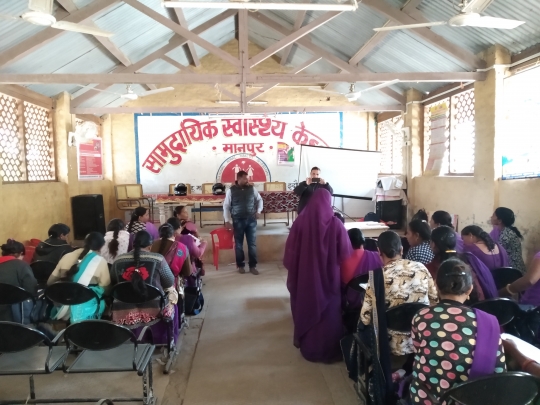The gender gap in time-use especially related to cooking and fuel collection – constrains women’s participation in remunerative activities. Moreover, the use of solid fuels has greater adverse health effects on women due to more exposure vis-à-vis men. Switching from solid fuels to liquid petroleum gas (LPG) can enable women to
use the saved time and effort in collecting solid fuel for more productive activities. An improved status for women in the household will result in cleaner fuel choices and better health outcomes – thereby creating positive feedback mechanisms (Austin and Mejia, 2017).
Launched in 2016, Pradhan Mantri Ujjwala Yojana (PMUY) is an ambitious social welfare scheme that aims to provide 50 million subsidized LPG connections to women in the poorest families, by March 2019. While over 31 million LPG connections have been released under the scheme till date, a large fraction of the beneficiaries has never purchased a refill of the cylinder after getting the connection.
This study will provide information to rural households about the health risks associated with solid fuels, and will examine the impact of the information campaign
on fuel choices. The study will also explore the effect of LPG usage induced by the information campaign on health, time use, productivity, and welfare of women.
The study will adopt a two-pronged approach:
• The causal effect of switching to LPG on women’s outcomes will be assessed by constructing an appropriate comparison group that was not eligible for or did not participate in PMUY. The health of women and children will be measured through self-reported health status, including objective indicators of respiratory health. A time-use survey based on 24-hour recall will be used to measure the effect of using LPG on women’s time utilization, particularly on collecting firewood and cooking and its subsequent effects on the time released for other activities – leisure, childcare, and labor force participation – on the intensive
and extensive margins.
• The results and understanding of household dynamics obtained from the above exercise will be used to design an experiment wherein information on the health benefits of LPG usage will be disseminated in randomly selected villages. The unit of randomization is the village to ensure that there is no spillover of information. The campaign will be conducted by ASHA workers, and perhaps women self-help groups, by visiting randomly sampled households in ‘treatment’ villages on a monthly basis. At the end of a year, responses of women in targeted villages will be compared with those that did not receive the information.
The findings of this study are expected to be used as inputs into the design of an information campaign of the Ministry of Petroleum and Natural Gas for greater dissemination of knowledge of benefits of clean air on women’s welfare. The study will be conducted in rural Madhya Pradesh as there is a significant variation across the
state in households’ access to firewood as an alternative fuel source.
